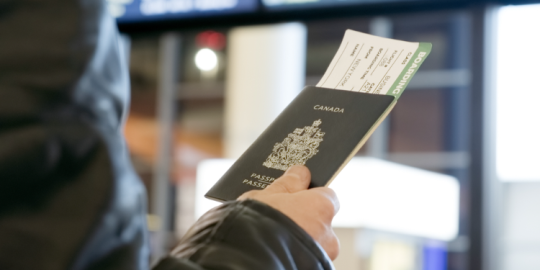Even Japan is slowly coming out of its bubble, but it's still too early for tourists and expatriates to move there. Can we still talk about a "return to normal"? Is it really possible to return to life before Covid?
What normal life looks like
For most, including expats, normal life is about being able to smile without a mask. It is, in some cultures, a handshake, kiss or hug are the common forms of greeting. But that was before the Covid pandemic even existed. There were no restrictions whatsoever for going to the stadium, the theater, or the cinema. No test was mandatory for traveling, and there was no quarantine or isolation. The world was only familiar with seasonal viruses and knew how to protect itself from them. The flu vaccine, regular hand washing to avoid gastro-enteric epidemics, etc., were some of the most common measures.
But then, the Covid arrived and swept life away. For two years, the world has lived with fear and concern about new pandemic waves. Finally, the spring of 2022 brought some fresh air. At first glance, it looks like the Covid pandemic is just history. The world seems to have gone back to normal as economies improve gradually. Most borders are open, and health and travel restrictions have been reduced to a bare minimum. Indeed, countries are removing Covid test requirements to enter their territory one after the other. On May 25, Belgium and Oman put an end to all their travel restrictions, followed by Germany on June 1. Before that, Slovenia, Mongolia, Norway, the United Kingdom, Hungary, Iceland and Ireland had already lifted their restrictions. Since then, streets and restaurant terraces have been invaded. But even if things are slowly getting back to normal, Covid is still present.
Yet, Covid is still present
More than 520,000 people are diagnosed with Covid-19 every day worldwide. This figure is steadily increasing, as is the death toll. More than 6 million people have died of Covid so far. In the first quarter of 2022, when countries announced the total or partial end of Covid restrictions, situations were sometimes more critical than at the time of stricter restrictions. France, for example, faced a new wave before deciding to relax its restrictions in early March, when an average of 50,000 cases were recorded per day. On March 14, the vaccination pass obligation was lifted, and so were a large number of restrictions. The number of cases kept rising up to a peak of more than 130,000 new infections per day. But the government is not likely to step back, unlike other countries like Canada. Faced with a new Covid wave, with more than 30,000 cases per day, Canada introduced the mask-wearing obligation. However, this obligation was again lifted on May 14, as the number of cases dropped to less than 5000 per day. In France, also, the number of new cases has dropped to around 16,000 per day.
So it looks like the compulsory mask remains the most visible sign of improvement. For the deaf, for example, it is real liberation. We haven't heard much about them since the beginning of the pandemic, but it's a fact that the restrictions have had a double impact on them. Transparent masks, for instance, are expensive and sometimes unsuitable. It isn't easy to read the lips of an invisible mouth and decode whatever is being said under a mask. Masks' rubber bands are another inconvenience for people using hearing aids, especially during video conferences. Speaking of a "double isolation", the end of the compulsory mask is finally a double relief for them.
Concerns over new variants
Before we speak of a return to normal, it's important to realize that the virus is still here. After Omicron, XE has become a significant concern for researchers. Thought to be harmless initially, it might be more contagious than Omicron. The United Kingdom, Spain, Finland, France, as well as South Africa and New Zealand, have been on alert since January. Things could worsen in the rest of Europe if barrier gestures are not respected and if vaccination campaigns are not stepped up. At the same time, although unrelated to Covid, monkeypox could well turn out to be a little more worrying than expected.
For the scientific, we should remain cautious faced with a virus that can adapt to its environment and mutate. While researchers understand that populations are tired of so many restrictions, they recall that forecasts can only be partial, faced with an unknown virus. They also believe that globalization and people's mobility also contribute to the propagation of the virus. Besides, large populations haven't yet been immunized against Covid, especially in African countries where the COVAX aid program seems to have failed.
A new normal
Basically, the return to normal is only possible for certain groups of people. Covid patients still with symptoms (long Covid) have not returned to normal life. Healthcare staff, many of whom suffer from burnout, have not returned to normal life. The same applies to patients whose pathology has worsened due to lack of care (most of the beds being occupied by Covid patients) or have unfortunately died, people who have lost their jobs, changed jobs, changed region, divorced, separated (re)married, have enriched or impoverished, or are still waiting for access to a vaccine. Situations vary from one country to another, so it's not likely that we'll return back to normal soon. It's rather a new normal that we'll have to adapt to.
















